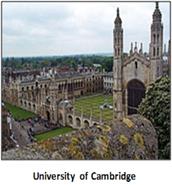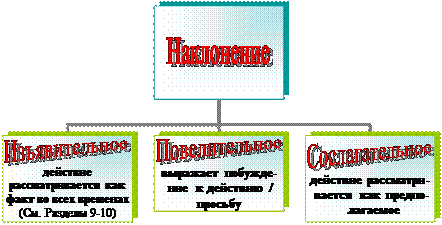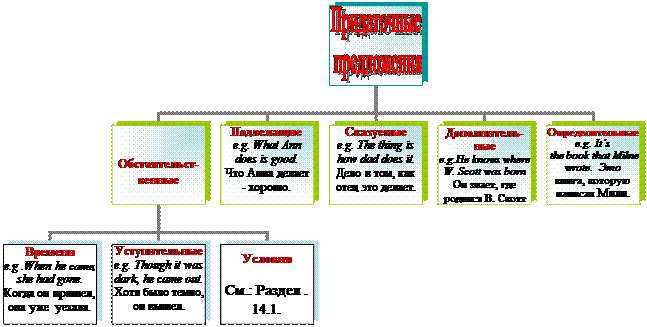
Заглавная страница Избранные статьи Случайная статья Познавательные статьи Новые добавления Обратная связь FAQ Написать работу КАТЕГОРИИ: ТОП 10 на сайте Приготовление дезинфицирующих растворов различной концентрацииТехника нижней прямой подачи мяча. Франко-прусская война (причины и последствия) Организация работы процедурного кабинета Смысловое и механическое запоминание, их место и роль в усвоении знаний Коммуникативные барьеры и пути их преодоления Обработка изделий медицинского назначения многократного применения Образцы текста публицистического стиля Четыре типа изменения баланса Задачи с ответами для Всероссийской олимпиады по праву 
Мы поможем в написании ваших работ! ЗНАЕТЕ ЛИ ВЫ?
Влияние общества на человека
Приготовление дезинфицирующих растворов различной концентрации Практические работы по географии для 6 класса Организация работы процедурного кабинета Изменения в неживой природе осенью Уборка процедурного кабинета Сольфеджио. Все правила по сольфеджио Балочные системы. Определение реакций опор и моментов защемления |
Наиболее употребительные выражения с предлогамиСодержание книги
Поиск на нашем сайте
Упражнение 48. Вставьте необходимые предлоги: 1. London* consists … three parts. a) from b) on c) of 2. I have always wanted to make a tour … London. a) about b) in c) to 3. Children place a shining star … the top … New tree on Christmas. a) to... on b) on... of c) at... in 4. There are many ancient traditions... Great Britain. a) from b) in c) to 5. Christmas Eve* is … the 24 th of December in England. a) at b) on c) in 6. … St. Valentine’s Day* people send special cards known as «valentines». a) at b) in c) on 7. British people often talk … the weather. a) along b) about c) on 8. In joy and in trouble, a good cup … tea is what makes English people calm. a) of b) with c) at 9. When I arrive … Heathrow*, I’ll ask somebody … the way to the City. a) at...about b) to... about c) in... from 10. A new tradition to demonstrate old veteran cars has been born … the UK. a) at b) in c) on ____________________________________________________________________ *См.: Раздел V Иллюстрированный глоссарий «Социокультурной портрет Соединенного Королевства Великобритании и Северной Ирландии»
1 statistics only about one third of school leavers receive post-school education in the UK, compared with over 80% in Germany, France, the US and Japan. Once admitted 2 a university fifteen per cent of British students fail to complete their degree course. Nowadays there are about sixty universities in Britain, compared with only seventeen in 1945. They fall 3 four broad categories: the ancient English foundations, the ancient Scottish ones, the «redbrick»universities, and the «plate-glass» ones. They are all private institutions, receiving direct grants from central government. Oxford and Cambridge (now called as Oxbridge), founded 4 the XIIIth and XIVth centuries respectively, are the most famous Britain’s universities. Today Oxbridge educates less than one tenth 5 Britain’s total university student population. Both universities grew gradually, as federations of independent colleges. In both universities, however, new colleges have been established, for example Green College, Oxford (1979) and Robinson College, Cambridge (1977). Scotland boasts 6 four ancient universities: Glasgow, Edinburgh, St. Andrews and Aberdeen, all founded in the XVth and XVIth centuries. Scottish universities were created with strong links with the ancient universities of continental Europe, and followed their longer and broader course of studies. Even today, they provide four-year undergraduate courses, 7 with the usual three-year courses in England, Wales. In the XIXth century many redbrick universities were established to respond to the greatly increased demand for educated people as a result of the Industrial Revolution and expansion of Britain’s Empire. Many of them were sited in the industrial centers, for example, Birmingham, Manchester, Nottingham, Newcastle, Liverpool and Bristol. 8 the expansion of higher education in the 1960s plate-glass universities were established, some named after counties or regions rather than old cities, for example Sussex, Kent, East Anglia and Strathclyde. There is also a highly successful Open University, which provides every person in Britain with the opportunity to study for a degree, without leaving their home. It is particularly designed 9 adults who missed opportunities earlier. It conducts learning 10 correspondence, Internet, radio and television, and also through local study centers. Today there are many university science and technology departments at Oxbridge, Manchester, Imperial College London, and Strathclyde, they guarantee the high level of national education. The matter is whether they will continue to be so in the future.
An ancient English foundation старейший английский университет An ancient Scottish university старейший университет Шотландии To boast хвалиться, славиться «Redbrick» universities «университеты из красного кирпича», открыты в XIX в. «Plate-glass universities» университеты, построенные в 1960-е годы, здания которых имели большие окна
2. a) – b) to c) in 3. a) in b) to c) into 4. a) in b) to c) into 5. a) with b) in c) of 6. a) of b) about c) – 7. a) in comparison b) in addition c) in advance 8. a) Out b) With c) In 9. a) for b) on c) to 10. a) with b) through c) by
13. НАКЛОНЕНИЕ (THE MOOD)*
*Наклонение показываeт, как говорящий рассматривает действие по отношению к действительности. Рис. 17. Классификация наклонений 13.1. Повелительное наклонение (The Imperative Mood)*
* Повелительное наклонение выражает побуждение к действию / приказ / просьбу / совет и т.д. которые адресуются коммуниканту или коммуникантам, глагол в повелительном наклонении стоит только в форме 2 лица единственного числа.
1. 1 your hat when you go indoors. It’s impolite for men to wear hats indoors including restaurants and churches. 2. 2 Please and Thank you as it is а very good manner to say these words. You will notice that the British say Thank you a lot. 3. 3 when you are first introduced to someone shake the right hand with your own right hand. 4. 4 Sorry if you are accidentally bumped into one. They, probably, will too, even if it is your fault! This is a habit and can be seen as very amusing by an «outsider». 5. 5 as a smiling face is a welcoming face. 6. 6 in public. You may feel better by burping loudly after eating or drinking, but other people will not! If you can not stop a burp from bursting out, cover your mouth with your hand and say «Excuse me» afterwards. 7. 7 with your mouth full of food. It’s considered impolite. 8. 8 personal or intimate questions. The British like their privacy. Please do not ask the questions such as How much money do you earn?, How much do you weigh?, 9. Never 9 a knife when having a meal. Women are entitled to equal respect and status with men in all areas of life and tend to have more independence and responsibility than in some cultures. They are independent and accustomed to entering public places unaccompanied. It is usual for women to go out and about on their own as well as with friends. Men and women mix freely. 10. 10. Spitting in the street is considered to be very bad mannered.
А manner манера, поведение To bump аaccidentally cтолкнуться с кем-либо случайно If it is your fault даже если это произошло по Вашей вине Very amusing by an «outsider» может быть довольно забавным с точки зрения приезжего А burp отрыжка How much money do you earn?, How much do you weigh?, Why aren’t you married? Сколько Вы зарабатываете? Каков Ваш Вес? Почему Вы не женаты (замужем)? To be accustomed to согласно традиции Women are entitled to equal respect and status with men in all areas of life and tend to have more independence and responsibility than in some cultures. Женщины имеют равные права с мужчинами во всех сферах жизни, более независимы, ответственны, чем в других странах. To split плевать (ся)
2. a) To say b) Say c) Do not say 3. a) To shake hands b) Shake hands c) Do not shake hands 4. a) To say b) Say c) Do not say 5. a) To smile b) Smile c) Do not smile 6. a) Not to burp b) Do not burp c) Do not to burp 7. a) Not to speak b) Do not speak c) Do not to speak 8. a) Not to ask b) Do not to ask c) Do not ask 9. a) do not eat off b) not to eat off c) eat off 10. a) Not to spit b) Not to spit c) Do not spit 14.ПРИДАТОЧНЫE ПРЕДЛОЖЕНИЯ (SUBORDINATE CLAUSES)*
* Придаточные предложение выполняет в сложноподчиненном предложении функцию одного из членов предложения. Рис. 18. Виды придаточных предложений
|
||||||||||||||||||||||||||||||||||||||||||||||||||||||||||||||||||||||||||||||||||||||
|
Последнее изменение этой страницы: 2016-12-12; просмотров: 458; Нарушение авторского права страницы; Мы поможем в написании вашей работы! infopedia.su Все материалы представленные на сайте исключительно с целью ознакомления читателями и не преследуют коммерческих целей или нарушение авторских прав. Обратная связь - 216.73.216.41 (0.01 с.) |

 Admire smb for smth
Admire smb for smth



 University of Cambridge [‘keimbriʤ] Университет Кембриджа
University of Cambridge [‘keimbriʤ] Университет Кембриджа 1. a) according to b) with c) at
1. a) according to b) with c) at

 Do’s and don’ts зд.: правила поведения
Do’s and don’ts зд.: правила поведения 1. a) To take off b) Take off c) Do not take off
1. a) To take off b) Take off c) Do not take off



